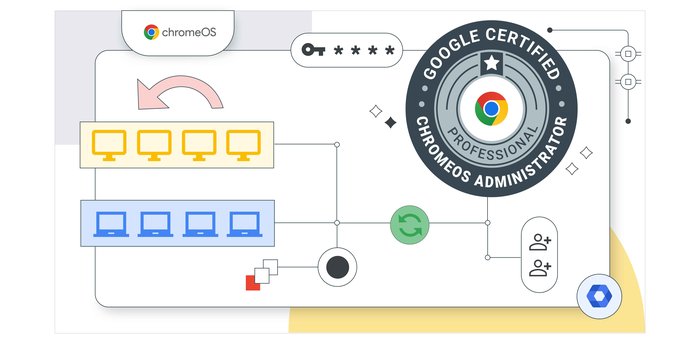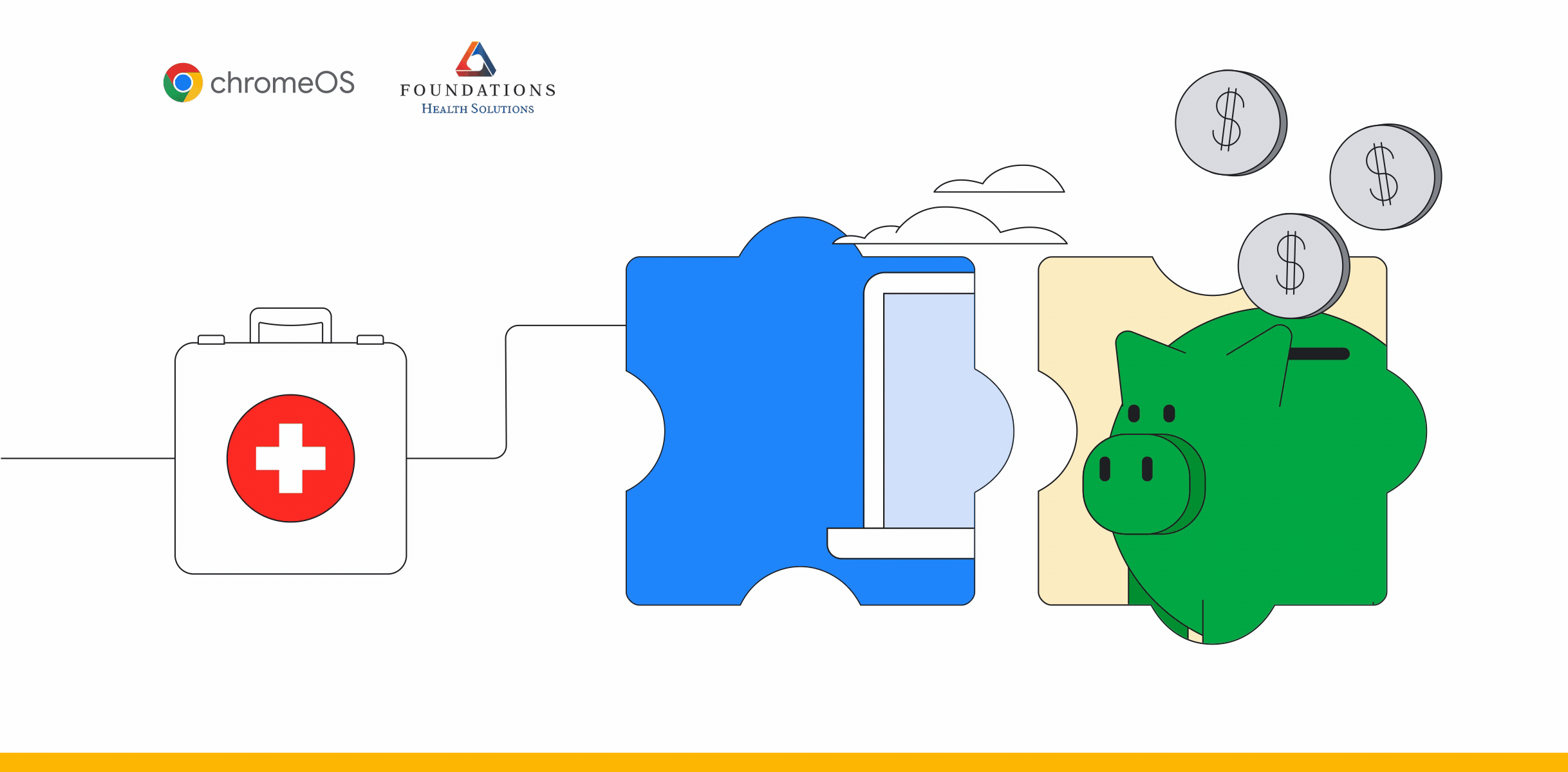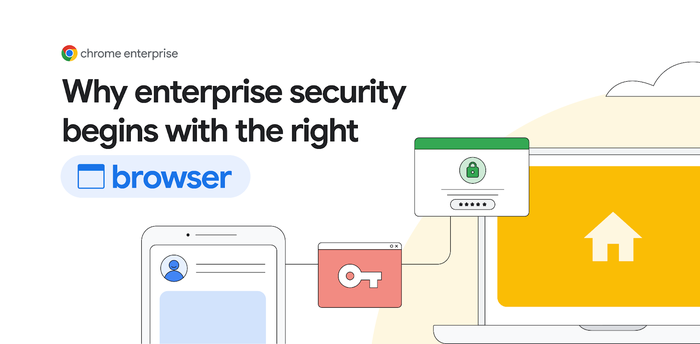Introducing the Modern Computing Alliance: The best way to predict the future is to build it

John Solomon
Vice President and General Manager, Chrome OS
If the last two decades have taught us anything, it’s that things—especially technology—move pretty fast. As an industry, technology providers have done a fantastic job developing new hardware and software products to make sure people can keep up, and get ahead. However the user experience is defined not only by the innovation of the building blocks themselves, but also increasingly by how systems work together.
As more and more of our lives—and our businesses—move to the cloud, there is an increasing need to look across the full technology stack, from silicon to the cloud, and in fact an exciting opportunity to redefine technology systems and stacks as a whole, and how they work in the interconnected, internet-first world we’re living in. The technology industry is moving towards an open, heterogeneous ecosystem that allows freedom of choice while integrating across the stack. This reality presents both a challenge and an opportunity.
To address the complexity of this challenge requires a new level of collaboration in the form of an industry-wide effort. Technology leaders have to work together in new ways to develop open solutions that transcend products or brands any individual might envision, and create a better, more optimized experience for everyone.
Today, we’re excited to announce Google’s membership in the Modern Computing Alliance - to address the biggest IT challenges facing companies today with integration from silicon to cloud. Working with a group of forward-thinking industry leaders, we’re aligning standards and technologies to provide companies with the choice of high-performance, cloud-first computing solutions from the vendor of their choice who provide modern solutions for the modern era of business. Our collective mission: To drive ‘silicon-to-cloud’ innovation for the benefit of enterprise customers—fueling a differentiated modern computing platform and providing additional choice for integrated business solutions.
A strong alliance needs members who bring unique perspectives to the table. The founding members of the Modern Computing Alliance include some of the most innovative companies and products across the silicon-to-cloud stack: Box, Citrix, Dell, Imprivata, Intel, Okta, RingCentral, Slack, VMware, and Zoom will be joining Chrome browser, Chrome OS, and Google Workspace.

Redefining modern computing together
'Modern computing' can mean many different things to different people. For me, it’s creating an integrated, secure experience on any device, from anywhere. A means of achieving this cross-device app experience is by employing enterprise progressive web applications (PWAs) that are faster and more responsive than native legacy solutions. In addition, developers only have to build once and can distribute without a gateway, so they can get their products to market sooner and more efficiently. These best practices will allow for a shift to a collaborative workforce with cloud-first cultures and devices, providing IT ease of management and insights on a stack that is fully integrated. The truth is, it's all of these things. And more.
Developing an integrated roadmap for the future
The question is no longer, “will we move to the cloud?” It’s “how fast?” And 2020 has pushed the accelerator all the way to the floor. We kicked off these efforts, because of direct customer feedback - help us accelerate our move to the cloud, provide us a better integrated choice, and prepare us for the uncertainty of the future.
That’s why the Modern Computing Alliance is committed to developing an integrated roadmap that makes the best use of our collective experience, insights, and expertise while giving us a clear path forward to improve customer choice and the enterprise computing market.
Our plan is to take on the most pressing challenges in end user computing today, including:
Performance: We will invest in reducing friction and creating a much more seamless, user-friendly experience across the web and devices.
If that sounds ambitious, it’s because it is. But it’s entirely doable. As an example, we can (and will) improve the quality of video and audio experiences in native PWAs by leveraging hardware-based capabilities and platform optimizations to provide exceptional performance across the entire vertical stack.Security and Identity: We’ll create more advanced cloud data security and improve data loss prevention solutions.
Now that we’re living—and working—in a globally interconnected world, increased protection and enhanced reporting is a must. Our security and identity solutions will enable tighter controls and smarter permissions, so IT teams can easily use and manage much stronger and better-integrated cloud data security and data loss prevention tools.
Remote Work, Productivity, and Collaboration: The Alliance will enhance the productivity of an increasingly distributed workforce by providing telemetry insights across the stack.
Employees need better workflows to make the most of their tools and their time. IT needs transparency, simplified administration, and analytics for both users and devices that they can access from anywhere. The solutions we build will provide silicon-to-cloud telemetry insights and analytics (which is a fancy way of saying the data is recorded on a remote device and then automatically transmitted for visibility) along with recommendations on how to optimize workflow experiences and automate repetitive tasks, to facilitate improved system efficiency.
Healthcare: Healthcare providers need a better ROI on technology in order to improve patient outcomes and reduce IT costs. Clinicians need more time ‘facing the patient’ and less time interacting with IT systems.To maximize their resources, we will optimize productivity, efficiency, and authentication in hospital settings, and improve performance for telemedicine applications.
Hospital environments are fast-paced and healthcare workers don’t stay in a single place (or on a single device) for very long. The Alliance will build solutions with fast user switching for clinicians and ensure everyone is able to access all of the information they need, from anywhere, seamlessly and securely—with support for electronic prescription of controlled substances (EPCS) workflows built-in.
While only a few examples, that’s plenty to keep us busy, but it’s not the end of the road. To build a modern computing system that meets the needs of businesses across the stack, we’re going to need some help.
A call for IT professionals: Join us as we drive the next wave of innovation
The Alliance members are all in place and ready to get to work, but there’s one essential voice missing: yours. We need IT champions like yourself to be a part of the newly founded Modern Computing IT Council, to help us shape the next era of innovation. If you’re passionate about the possibilities of modern computing, please join us to make your voice heard.
Benefits of joining the Modern Computing IT Council include:
Access: Gain entry into early-access programs and connect with members of Product Management teams across the stack
Influence: Participate in exclusive advisory workshops, help shape the outcomes of the roadmap, and be among the first to test new solutions and provide input
Community: Participate in peer-to-peer networking, mentorships, and conversations with executives at industry-leading tech companies
As we continue to develop our roadmap, input from decision makers like you will help us stay focused on the solutions you need most. Join the Modern Computing IT Council today to help us make the future of computing exactly what you want it to be. We're excited to share some early innovations from the Alliance in the first half of 2021.



